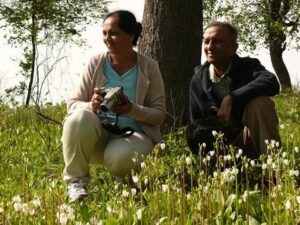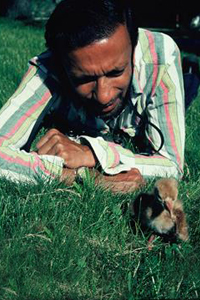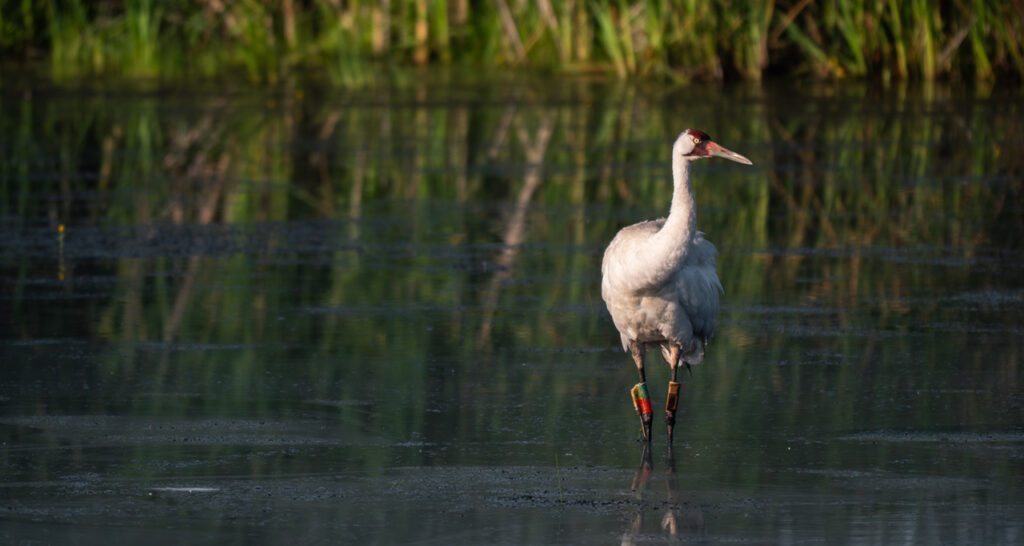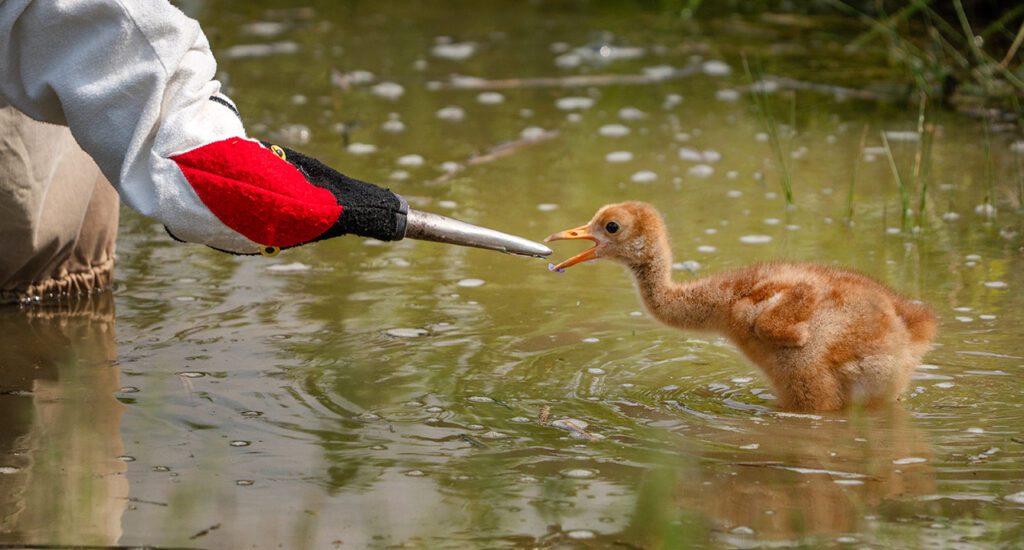Travels with George: India 2014
By Dr. George Archibald, ICF Co-founder & Senior Conservationist

Treasured Colleagues in India
Several years have rapidly passed since I last visited India. And although I was just there for five days in early February, it was an opportunity to honor my late friend and colleague, Prakash Gole, by speaking at a gathering of about one-hundred like-minded souls in Pune at the release of two books respectively by and about this remarkable man I have known for 34 years.
A small man with a sharp mind, a huge heart, and keen wit, Prakash was a self-trained naturalist who studied economics in university, worked for a season in a family business, and eventually devoted his life to the work of The Ecological Society (TES) that he and his gifted wife, Swati, co-founded.
Soon after we met in 1980, Prakash spent a month at ICF, where he discovered Aldo Leopold’s A Sand County Almanac and was intrigued by the then new prairie restoration efforts at ICF. Soon thereafter Prakash and his team created TES to promote intellectual exchange about the interplay between economics and ecology, to provide adult education courses on this topic, and to develop hands-on habitat restoration projects for wetlands, grasslands and forests near Pune. A delightful meeting with five architects, who traveled from some distance to attend classes at TES each Saturday, demonstrated the Society’s outreach to students from a variety of disciplines. Many of those I met this month indicated how their time with Prakash, both personally and in the field and classroom, changed their lives. In many ways, Prakash’s life and works were parallel to those of Leopold. Many of us share a dream that through Prakash’s work, backed by some creative branding by TES, that his name will became synonymous with healing of both values and landscapes throughout India.

During three days with Swati and their children, Tejas and Rajas, and many new and old friends, the continuation and growth of Prakash’s legacy was a major topic for discussion amidst fabulous dinners and a healthy share of birding. It was a touch of heaven.
My final two days were shared with Belinda (daughter) and Anne (mother) Wright at their home in New Delhi. In the 1970s and 80s, these ladies were close friends of ICF Co-founder, the late Ron Sauey, who studied cranes in India as the topic of his doctoral dissertation.
The Wrights have devoted their lives to conservation. Anne was one of the creators of the Indian Wildlife Protection Act of 1972, as well as one of six people chosen by Mrs. Indira Gandi to select and survey the first nine tiger reserves in the country through Project Tiger. Belinda and Stanley Breeden created an Emmy Award-winning film for the National Geographic Society, The Land of the Tiger. In 1994, to curtail the poaching and illegal sale of tiger parts, Belinda founded and continues to lead the Wildlife Protection Society of India with a primary focus on illegal trade of wildlife. Belinda and Anne are citizens of India, fluent in Hindi, and in love with both Anglo- and Indian cultures; it was a touch of the Raj to share time and stories with the Wrights.
Today, ICF’s work in India is headed by gifted scientists, Dr. Gopi Sundar and his wife, Swati Kittur. Their program, SarusScape, focuses on the Sarus species, the world’s tallest bird that flies, and which is a resident from the northern plains of India to the wetlands of both Southeast Asia and northeastern Australia. Learning from the study and conservation of Sarus in their stronghold area in north-central India, Gopi, Swati and their colleagues are helping to secure a safe future for the landscapes and practices that allow these enormous birds to thrive in heavily populated agricultural areas. Great changes are sweeping across the diverse Indian nation and its 1.2 billion people. We have hope that the enormous contributions of Indian conservationists will help assure landscapes where humans and wildlife will always thrive side by side. That was one of the dreams of Prakash Gole.

